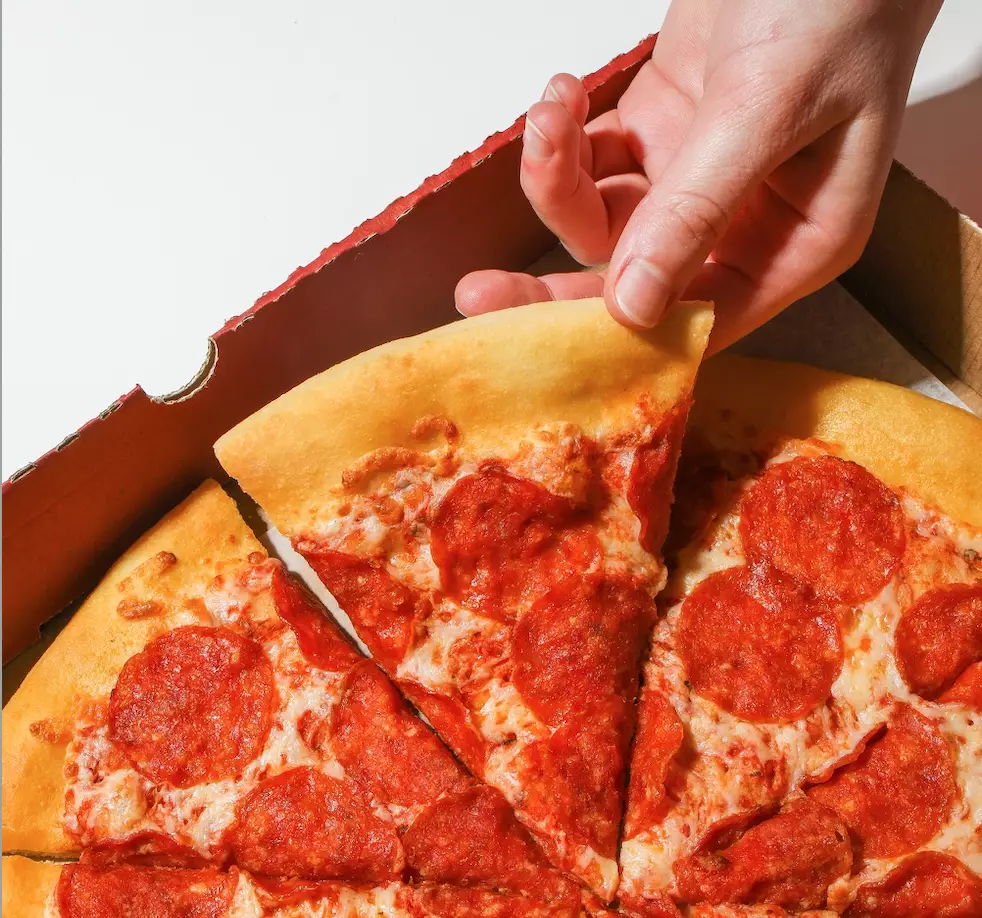
We all know what it's like to wake up to the sound of our own stomach churning, or to experience that groggy feeling after a greasy takeaway.
Researchers have looked into this, and they've found that a 'food hangover' is actually a thing. Why are we not surprised?
There may be an explanation as to why so many of us get them, and it seems food intolerance is the main factor.
Advert
A survey of 2,000 people found on average, they will have nine of these morning stomach cramps (related to late-night meals) every month.
Nearly half (49 per cent) don't realise how their diet will affect their body in the morning until it's too late.

The most common food intolerances among the respondents include having a gluten intolerance (54 per cent), caffeine allergy (45 per cent), high fructose corn syrup allergy (43 per cent) and lactose intolerance (36 per cent).
Advert
Yet two-thirds of people with a food intolerance still willingly eat foods they shouldn't - even if they have an intolerance for it, simply because they like it too much.
Could dinner timing play a role in our early morning regrets? In the UK evening meals are usually served between 6.30pm to 8pm. Many people indulge in late-night dinners between 8pm and 2am.
The study questioned Americans, who typically eat dinner around 7pm, about their dinnertime habits. For many, this type of discomfort may result from food intolerance, as 41 per cent of Americans polled said they suffer from some type of food allergy or intolerance.

Commissioned by Meatless Farm and conducted by OnePoll, found Respondents said they could especially never give up mac and cheese (45 per cent), butter (40 per cent) and pizza (40per cent).
Advert
Yet even the most stubborn eaters can be convinced to change their ways, as long as there's an alternative available. Two-thirds (65 per cent) would be willing to let go of unhealthy foods if they could count on something both healthier and just as good.
When asked whether or not they would switch to a more plant-based diet, just over a quarter (29 per cent) of Americans said they wouldn't consider changing.
Respondents said they could especially never give up mac and cheese (45 per cent), butter (40 per cent) and pizza (40 per cent).

Yet even the most stubborn eaters can be convinced to change their ways, as long as there's an alternative available. Two-thirds (65 per cent) would be willing to let go of unhealthy foods if they could count on something both healthier and just as good.
Advert
When asked whether or not they would switch to a more plant-based diet, just over a quarter (29 per cent) of respondents said they wouldn't consider changing.
"There is a direct correlation between highly processed meat and the risk of developing serious lifestyle diseases," said Morten Toft Bech, the founder of Meatless Farm, a plant-based food company.
"Alongside our environmental mission, helping people eat healthier while enjoying their favourite dishes is exactly why we started Meatless Farm. It's all about balance and inspiring small changes."
Featured Image Credit: PexelsTopics: Life News, Food And Drink